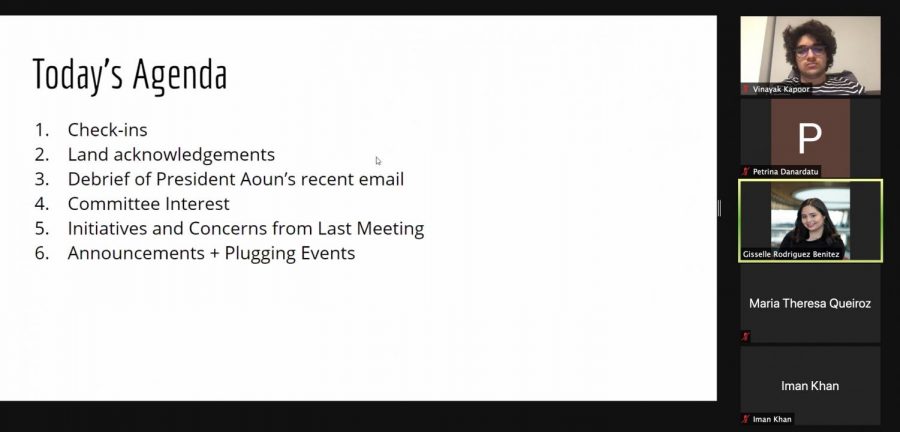NSCC’s first assembly discusses food insecurity, COVID-19 concerns
October 25, 2020
The first meeting of the General Assembly of the Northeastern Student of Color Caucus, or NSCC, took place online Oct. 7. The president of the General Assembly, Vinayak Kapoor, gave his presentation to members about the role and objectives of the NSCC and its General Assembly.
Kapoor, a third-year criminal justice and political science major, began his presentation with a description of the NSCC: a collection of Northeastern students of color working towards liberation from institutional racial oppression. Moreover, NSCC develops shared goals and reasonable metrics for university accountability in matters related to diversity and inclusion initiatives on campus.
The General Assembly of the NSCC, as Kapoor explained, is the Caucus’s main decision-making body. It focuses on discussion and debates of current social justice issues and collaborative work to develop advocacy and activism and events.
“The General Assembly’s goal is to create events and create dialogue,” Kapoor said. “Our meetings will be in-part an educational space, as well as space dedicated to action by creating and making proposals to [Northeastern] administration.”
General Assembly members were encouraged to join various committees for further and deeper involvement in NSCC. Committees act as smaller focus groups that are dedicated to specific issues, and therefore have more defined tasks and goals.
Some committees include the international student advocacy committee, marketing and outreach committee, mental health access and expansion committee and the data collection and analysis committee. There’s also a task force for combating white supremacy and fascist ideology.
“These committees are really where the bulk of our work gets done,” Kapoor said. “If you are really passionate about making change, which you all must be because you are here, you must join one of these focus groups.”
Members also expressed interest in investigating food insecurity among college students. Some members voiced their opinion about how the Swipe2Care program, which allows students to donate unused meal swipes so that they can be used by students in need, is not living up to its potential and needs reform.
NSCC emphasizes the importance of partnership with other student groups and community organizations, including the Jewish Student Union and the Student Government Association, organizations that are also working to ensure that students’ basic dietary needs are met and secure.
Concerns about COVID-19 were voiced by some members of the General Assembly. Specifically, there were claims that the system to report cases of the coronavirus needs improvement. On top of this, clearer guidelines for students to follow to maintain COVID-safe environments should be provided.
There was also a call for more support for low-income students who lost their jobs due to COVID-19. On top of this, concerns about how financial aid has changed for people who chose to stay at home sparked the interests of several General Assembly members.
“Some students are staying home while taking classes online, and their costs have not proportionally decreased to reflect that difference,” said fourth-year economics major Giselle Rodriguez Bentiez, Secretary General of NSCC.
Finally, members felt that NSCC should aim to produce easily consumable social media content, such as infographics, for people to share to bring attention to these issues and stress the NSCC’s mission.


















